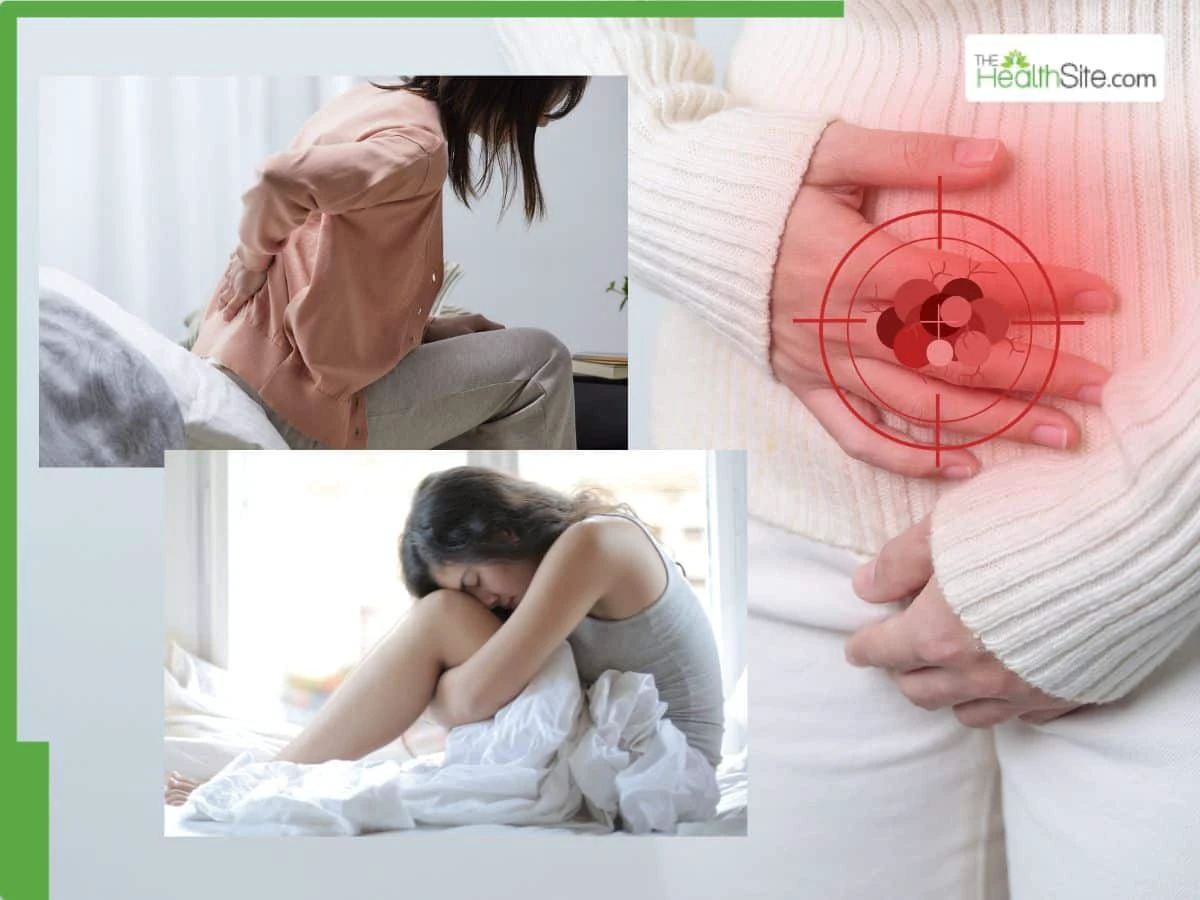Cervical Cancer Warning Symptoms: Vaginal itchiness, to pain after sexual intercourse, here are the top 5 signs that may show up in your body when you are suffering from cervical cancer.
VERIFIED By: Dr. Rajanigandha Tudu, Consultant Medical Oncology at RCHRC.
“I told myself it was just stress or exhaustion,” said 38-year-old Ananya, describing the heavy periods that lasted longer than usual, fatigue, and loss of appetite that she only paid attention to after months of similar, challenging menstrual cycles. “I thought it was normal and didn’t feel the need to check. I didn’t want to overreact.”
Like Ananya, many women in India are dismissive or fearful of such symptoms, typically avoiding them or hoping they go away. This hesitation is not unique in fact, it is reflective of what many women face when it comes to screening for health conditions like cervical cancer. For far too long, cervical cancer has been a subject of taboo and shame, resulting in low awareness and understanding of what women are experiencing.
Every year, more than 1.2 lakh women are diagnosed with cervical cancer, and there are over 75 thousand deaths reported annually, owing to the condition.
Despite being one of the most preventable and treatable manifestations of cancer, cervical cancer remains the second most common cancer affecting women in India. In large part, this heavy burden is a result of cases often going undetected or unaddressed until it’s too late.
Cervical Cancer Risk: Why Should You Get Tested Early?
Whether you are experiencing worrying signs such as:
- Vaginal bleeding between periods,
- Unusual or persistent vaginal discharge, or
- Pain during intercourse
- Abdominal pain
- Unusually excessive vaginal discharge
Opting for cervical cancer screening is essential. This is because some women may be asymptomatic, while others experiencing early signs may not connect them to the condition, feel embarrassed discussing them, or influenced by the stigma around the topic.
Dr. Rajanigandha Tudu, Consultant Medical Oncology at RCHRC – a joint initiative of the Ranchi Cancer Care Foundation (RCCF) and the Tata Cancer Care Foundation and supported by Tata Trusts, highlighting the urgency, states, “Timely detection is the most effective cervical cancer control: in fact, 95% of cases can be treated successfully if detected early. This can not only raise the chances of survival but also lower medical, emotional, and financial strains on women and their families”.
To overcome the barriers to early detection and encourage more women to consider screening, addressing misinformation and confusion including by debunking common myths around cervical cancer is also key:
Myth: If I Have HPV, I Will Get Cervical Cancer
Fact: HPV is very common and such infections often go away on their own. However, in some cases, certain high-risk infections persist over a long duration and may lead to cervical cancer. Even in such cases, if identified early, such cells can be identified and treated promptly before cervical cancer even develops.
Myth: Only Older Women Get Cervical Cancer
Fact: While it is more common in women over 40 years of age, cervical cancer can affect women in their 20s and 30s as well.
Myth: I Don’t Need Screening if I’ve Had The HPV Vaccine
Fact: Even if you’ve received the HPV vaccine, you still need cervical cancer screening. The vaccine offers protection against certain high-risk HPV types that cause majority of cervical cancers, but not all. Therefore, regular screening remains crucial even for vaccinated individuals.
Myth: Cervical Cancer Is Fatal
Fact: Early detection results in high survival rates and can significantly improve a person’s health outcomes.
Cervical Cancer Diagnosis: Lean On Your Support Systems
Promoting screening can have significant, meaningful consequences on women’s lives. But to fight the cultural, access, and awareness barriers, a robust support system at home, in communities, and within the healthcare system is essential to help women take the first step towards screening. With family and spousal support, they can be more comfortable and open to acknowledging any symptoms that they’re facing and having such open conversations that encourage them to prioritize their health.
Beyond this, there is a need for open conversations with doctors and allied healthcare service providers to aid in diminishing stigma and normalizing early care. Positive social interactions with friends, community leaders and health advocates can encourage them by making health behaviors visible and accepted.
Empowerment begins with information, open discussion, and accessible care. Breaking down myths, confronting stigma, and supporting each other, at home and beyond, ensures that women everywhere have the knowledge, confidence, and support they need. This can help them keep an eye on any concerning signs, consult a doctor, and get screened, so that they can lead a life unaffected by fear or shame around cervical cancer.
About the Author
 Satata Karmakar
Satata Karmakar
A postgraduate in Journalism and Mass Communication, Satata Karmakar brings over a decade of experience working with leading media brands, including Outlook Magazine, Microsoft News, and The Statesman. As an Assistant News Editor at TheHealthSite.com, she specialises …
